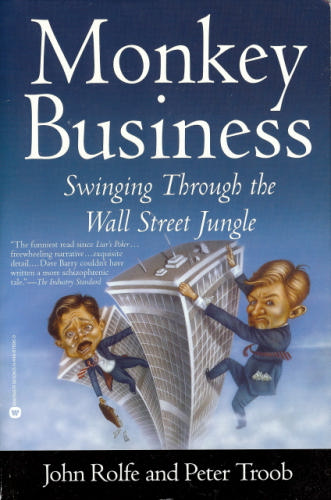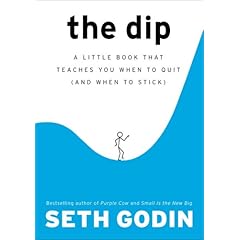Good to Great
by
Jim Collins

ISBN-13: 978-0066620992
I bought this one because it was too red and it was EVERYWHERE. Every single BN and bookstore had it. So I finally wanted to get it and know that I am through with it. It actually is not bad. Jim Collins did a HUGE research to try to figure out why some companies are Great and why the rest of the companies are Good. By the former definition he means the companies that had a huge success/breakthrough and kept it for at least 15 years. A few very good points I want to highlight:
- “[Executives that ignited transformation] first got the right people on the bus (and the wrong people off the bus) and then figured out where to drive it.” This is profound. We know that people are important, but this is truly taking it to the end. Not that it doesn’t matter what you do, but that if you have the right people on the bus, they will know what to do and where to drive it.
- “We found no systematic pattern linking executive compensation to the process of going from good to great.” This is related to the previous bullet, because if you have the right people, the motivation will be coming from within and you wouldn’t have to waste money and energy in motivating them. Interesting, you would think that more money means more success…
- He says something very important about the focus of the company – you need to figure out the one thing you can be best at, and drop everything else. Expanding business should be done only through expanding your core business [what you are already best at]. He calls that the hedgehog concept. True. Seth Godin says the same thing in the Dip. My review here.
- For outsiders the jump in price of stock that doubles triples or quadruples market index seems fantastic, amazing, and instantaneous, but for the company, that breakthrough is just another small step in the many years of hard work and preparation. Jim Collins gives example with an egg – for people, the breaking up of the egg seems so exciting and momentary, but from the chick’s perspective, cracking the shell is just one little thing after all the transformation than went about to convert a yoke to a chicken. That reminds me of one of Marc Cuban‘s posts in which he says that you have to work had in preparation. One day when the opportunity comes, you will be able to grab it because you prepared for so long. True, true.
Those are all very good points. Collins also gives an abundance of examples that help illustrate and prove the points.



